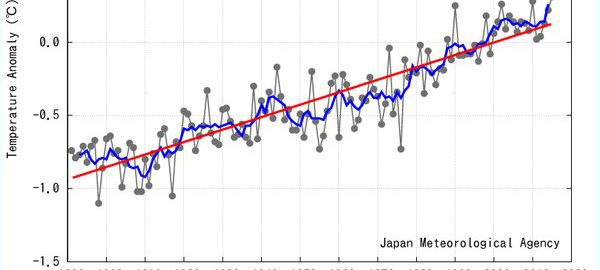Average global temperature was 1.07C hotter – beating last month’s previous record increase
The global temperature in March has shattered a century-long record and by the greatest margin yet seen for any month.
February was far above the long-term average globally, driven largely by climate change, and was described by scientists as a “shocker” and signalling “a kind of climate emergency”. But data released by the Japan Meteorological Agency (JMA) shows that March was even hotter.
Compared with the 20th-century average, March was 1.07C hotter across the globe, according to the JMA figures, while February was 1.04C higher. The JMA measurements go back to 1891 and show that every one of the past 11 months has been the hottest ever recorded for that month.
Data released released later on Friday by Nasa confirmed last month was the hottest March on record, but the US agency’s data indicated February had seen the biggest margin. The Nasa data recorded March as 1.28C above the average from 1951-1980, while February was 1.34C higher.
The World Meteorological Organisation, the UN body for climate and weather, said the March data had “smashed” previous records.
Climate change is usually assessed over years and decades, but even scientists have been struck by the recent unprecedented temperatures. Furthermore, annual heat records have been also tumbling, with 2015 demolishing the record set in 2014 for the hottest year seen, in data stretching back to 1850.
The UK Met Office expects 2016 to set a new record, meaning the global temperature record is set to have been broken for three years in a row.
Prof Michael Mann, a climate scientist at Penn State University in the US, responded to the March data by saying: “Wow. I continue to be shocked by what we are seeing.” He said the world had now been hovering close to the threshold of “dangerous” warming for two months, something not seen before.
“The [new data] is a reminder of how perilously close we now are to permanently crossing into dangerous territory,” Mann said. “It underscores the urgency of reducing global carbon emissions.”
Read more: The Guardian

